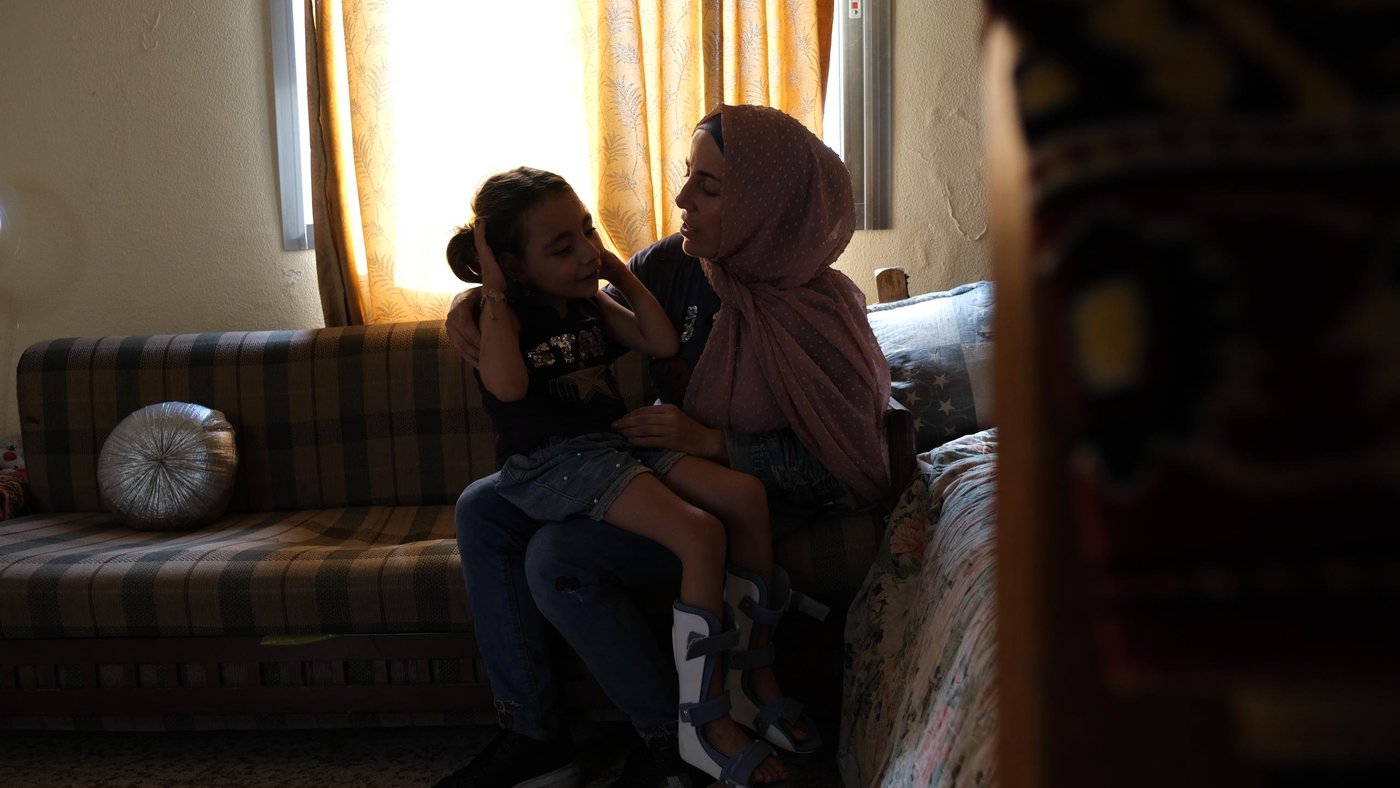There is no other way for Reem to see the world. Her disability has been there throughout her short life of five years. Mona, her mother, has learned to adapt.
“I’m scared to leave my daughter alone,” says Mona, who arrived from Syria 10 years ago. “I need to take her everywhere I go. Therefore, I’m struggling to find a job.”
Mona recognises that not having a job will inevitably mean not affording rent, ultimately putting her at risk of eviction. Despite that, her daughter’s progress keeps her hoping things will turn around.
Recent research by NRC, Oxfam and Solidarites International, interviewing 292 families with a member who has a disability, found that for most of them, a job is often not seen as a viable option due to the need to prioritise care for older people and household members with a disability.
“The physical therapy, speech therapy and occupational therapy sessions that Reem is undergoing and the progress she is making are an enormous relief for me. The doctors once told me to give up on her, but I didn’t. She is starting to move and talk for the first time in her life.”
With the support from European Union Humanitarian Aid and the Norwegian Refugee Council (NRC), Humanity and Inclusion (HI) are providing physical therapy, speech therapy, occupational therapy, psycotherapy sessions as well as assistive devices and items for specific needs to persons with disabilities and the elderly in Lebanon.
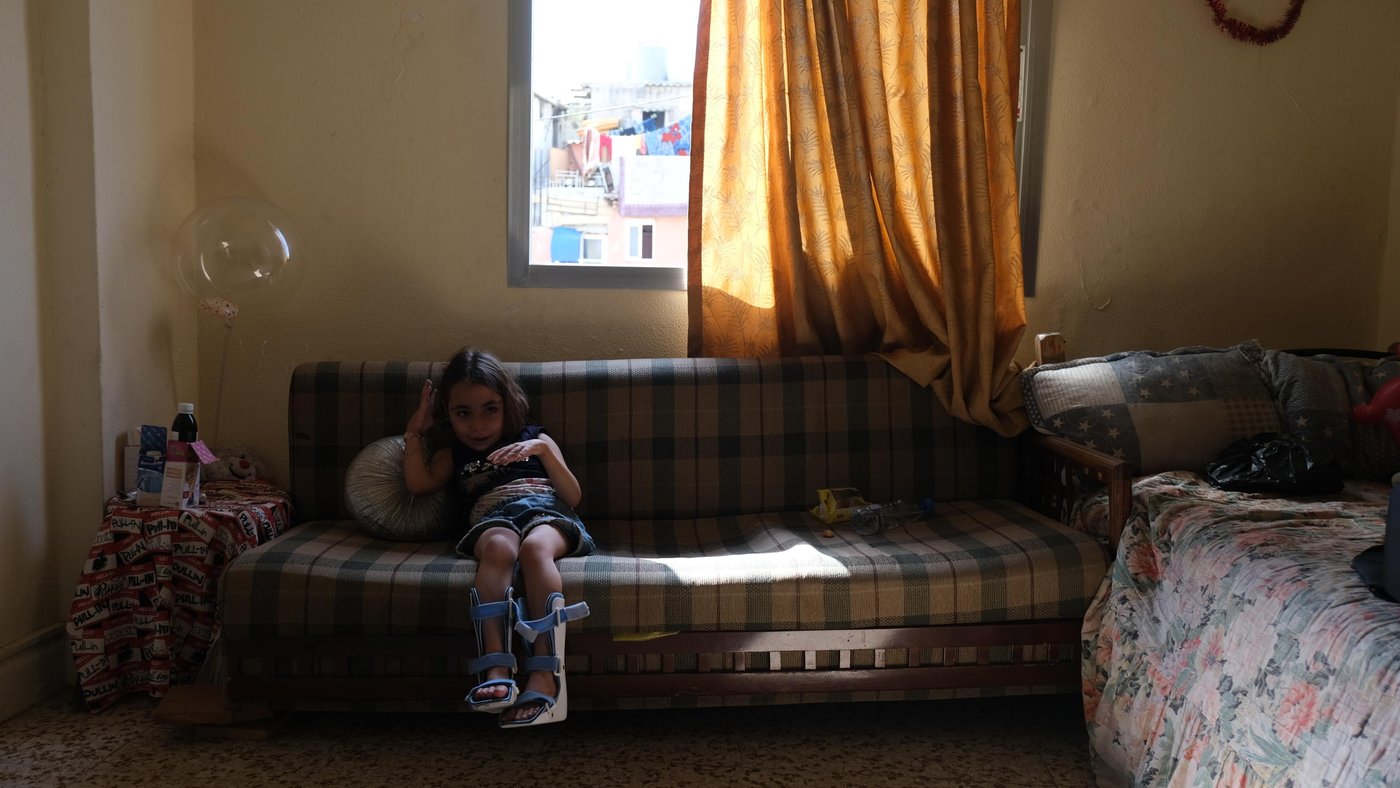
Cut off from the world
“My kids often ask me why their friends can go to school and play in the neighbourhood while they must stay at home for so many years. I don’t know how to answer.”
Aisha, a Syrian refugee living in the Bekaa Valley, is a mother of six. Bayan, Zamzam and Mohammad all have muscular dystrophy; muscle weakness has limited their mobility, making everyday movements difficult. Bayan, who is 17 and the eldest of her children, is deteriorating. She can no longer move around.
She has never been to school. They wouldn’t admit her. We can’t afford to send her to a private school.
According to Humanity and Inclusion (HI), children with disabilities were already left behind with very limited access to learning opportunities even before Covid and Lebanon’s ongoing economic crisis. There are hardly any assistive technologies or rehabilitation services in schools, and adapted supplies and stationery aren’t affordable for many families. Only 1% of school-age children with disabilities are enrolled in mainstream public schools, with only 30 public schools recognised as ‘inclusive’ or disability-friendly. The Ministry of Education and Higher Education (MeHE) aims to shift towards a more inclusive education system with 120 public schools by 2024.
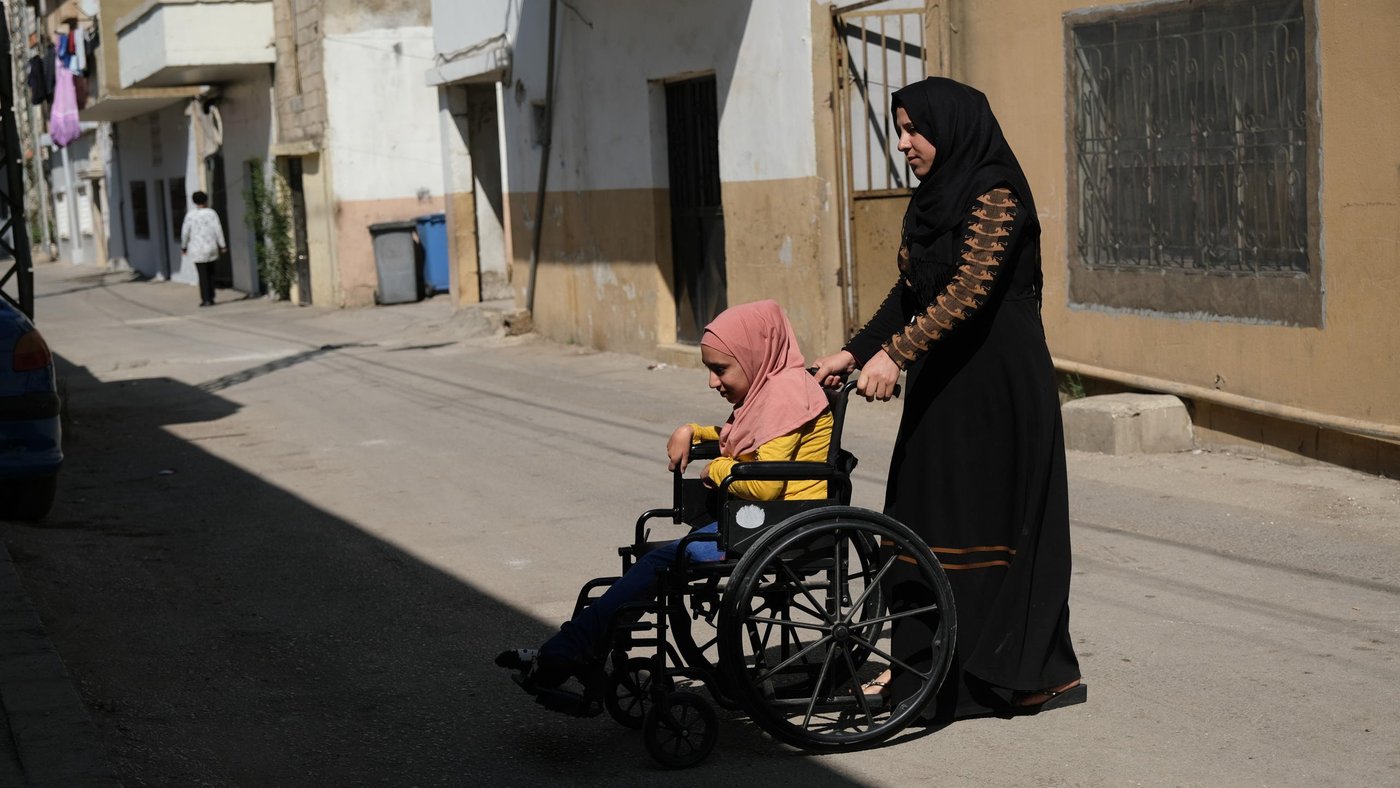
Families who have a member with a disability are often forced to make major changes to their household routines in order to accommodate their special needs. Families must take on additional debt, which weakens their already fragile financial situation even more.
Aisha’s children need nappies and physiotherapy sessions, they also need speech therapy and psychiatric treatment. The sessions are provided by HI partner Mousawat Organization. Without this vital support, the children won’t be able to get the treatment they need. On top of that, they require special equipment like a wheelchair and a walker, which Mousawat provides, but they still need other essentials like special mattresses.
“What is more important, food or therapy? This is a choice I always have to make when Mousawat doesn’t support us. One physiotherapy session costs 400,000 LBP [approx. $10 USD],” says Aisha.
The same applies to Hayat’s family who had to sell their former home, furniture, and car to afford Hayat’s continued treatment and medication. Hayat is a one-year-old Lebanese girl from Tripoli, Lebanon. She has Down's syndrome, she is also partially deaf, and has muscular dystrophy.
“Hayat requires medication,” says her mother, Fatima.
“But we are unable to find it in the pharmacies due to shortages. We get alternative medication for 5,000,000 LBP [around $125 USD] per month.”
“Hayat requires physical treatment that is being provided by a local organisation partnering with HI, called Community Based Rehabilitation Association. She requires regular tests at a hospital in Beirut, but we can’t afford the transportation. Every time Hayat is admitted to the hospital, we have to find the money. We’re still in debt to the hospital, and we repay a very small amount each month. Hayat has a state disability card.”
Disability cards are intended to facilitate free access to specific services. However, according to research done by HI, they are becoming increasingly useless as certain hospitals frequently refuse to admit anyone for whom the ministry of public health bears financial responsibility, regardless of medical necessity, citing substantial delays in recouping fees from the ministry.
After having three physical treatments, Hayat is now moving slowly.
“When we tried thinking about the future, we got tired. The doctor even advised us to live our lives day by day but seeing her fight for her life is giving us the hope to continue.”
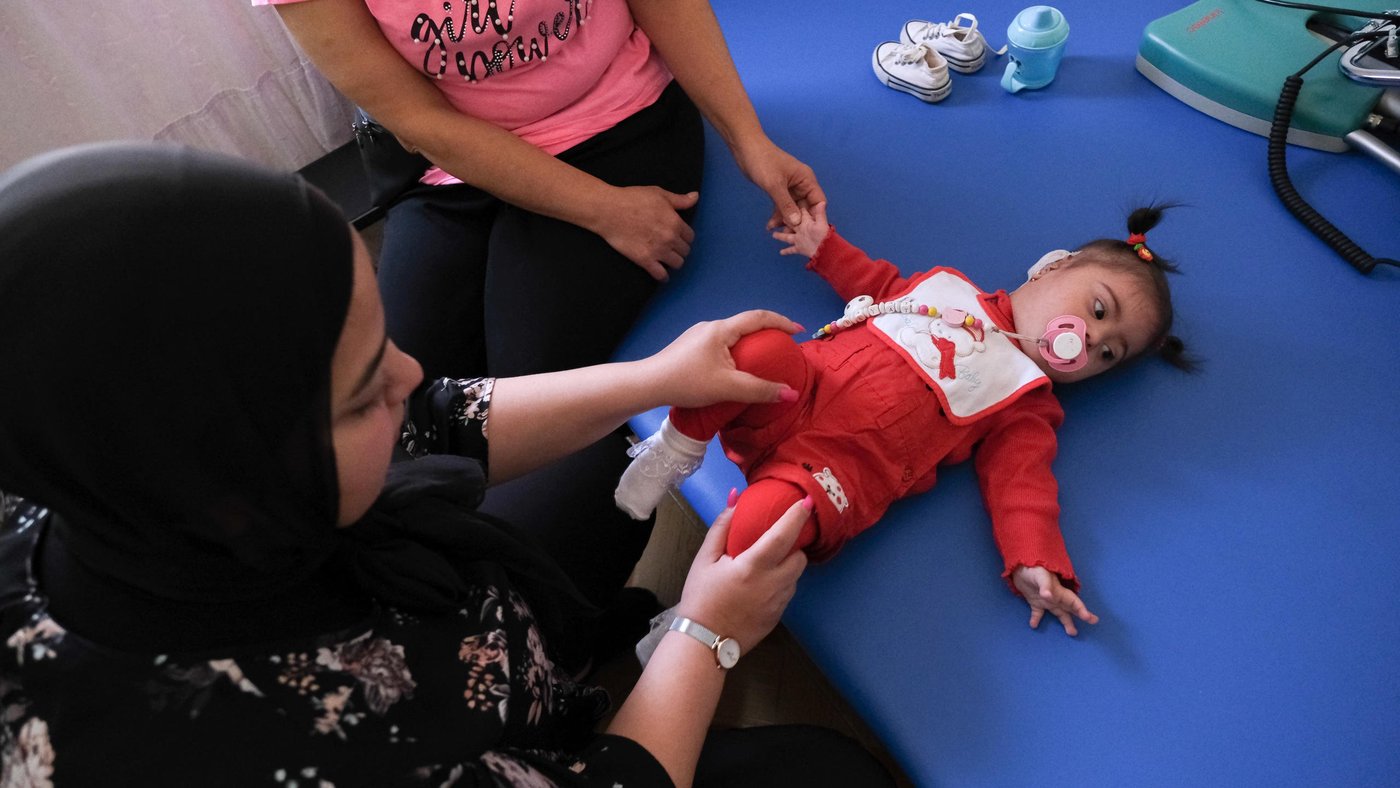
A call to action
NRC and HI strongly believe that most people with disabilities, if provided with the right education, training, and empowerment, can be better integrated and contribute to society.
“People with disabilities are often seen as victims. Policymakers assume what our problems are and try to come up with solutions, without even asking our opinion” says Fayez Oukacha, an activist for the rights of people with disabilities, who himself has polio. “I share this view with many people with disabilities. We need to be included in the decision-making; we want to have an opinion.”
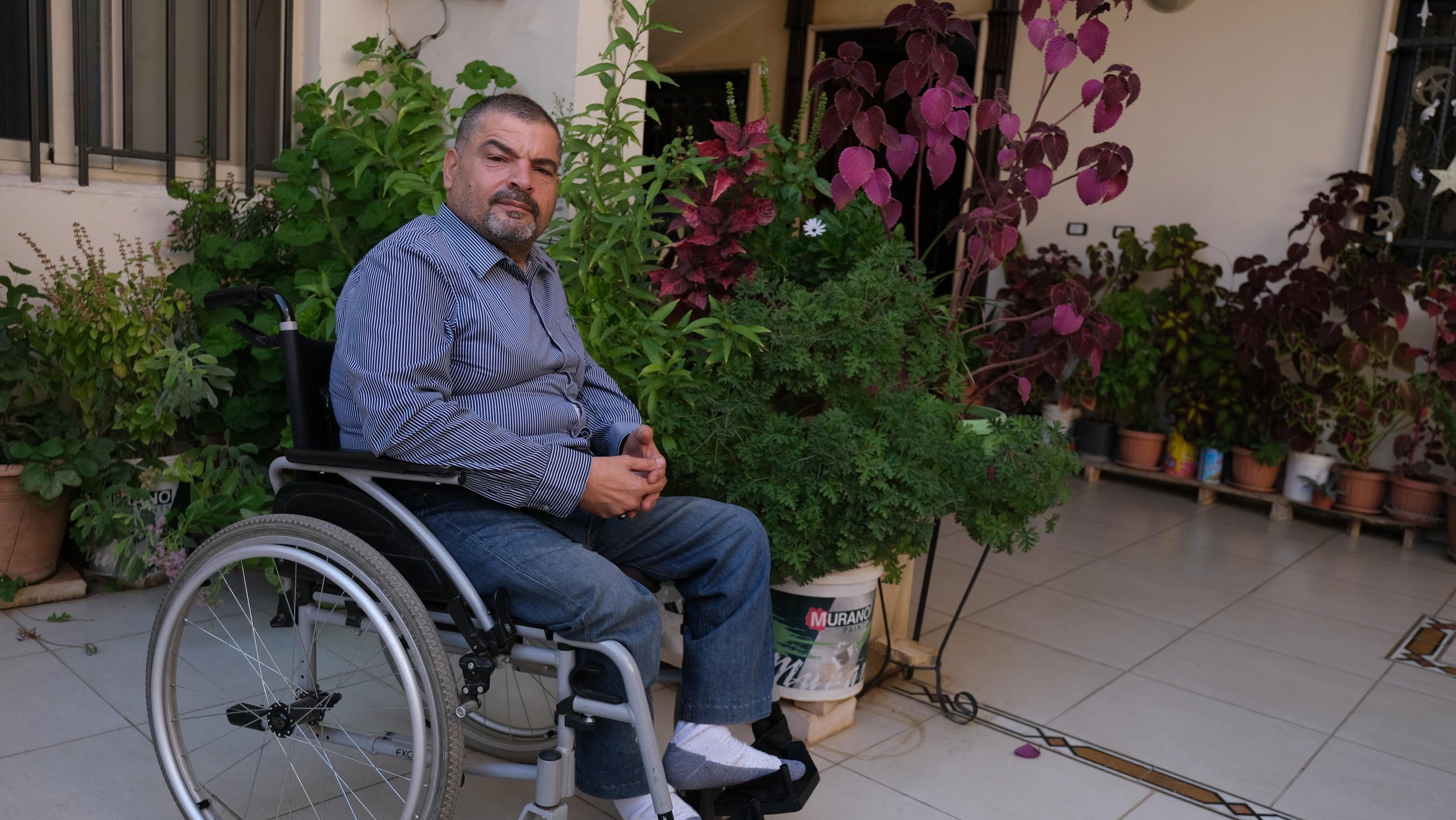
As life becomes harder for everyone in Lebanon, with an increasingly challenging access to healthcare and education, is it is extremely important to maintain focus on specific vulnerable groups such as people with disabilities. Otherwise, there is a risk that the crisis will hit them even harder.


